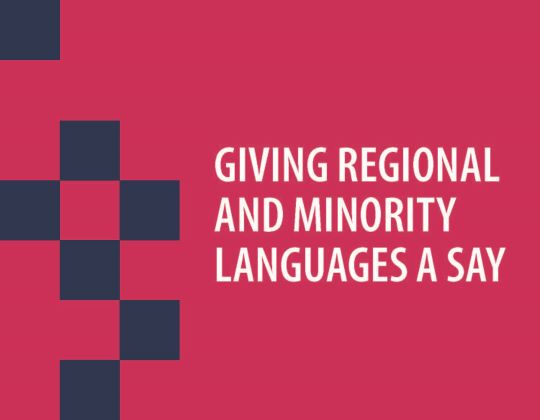In an evaluation report published today, the Council of Europe’s Committee of Experts of the European Charter for Regional or Minority Languages concludes that while Spain has a well-developed system for the protection and promotion of its regional and minority languages, further efforts are needed to address the existing gaps to comply with its obligations under the treaty. (See the summary of the report in Spanish).
The Spanish Constitution, the Statutes of Autonomy and specific laws provide a general framework for the protection and promotion of regional and minority languages. However, challenging issues continue to be found in the fields of justice, state administration, provision of public services and transfrontier exchanges, which fall under the remit of the Spanish state authorities. These areas often lack the full implementation of the Charter’s provisions, particularly in ensuring the right of citizens to use their regional or minority languages in court proceedings, healthcare services, and communication with state institutions.
The State is responsible for basic legislation in education, while autonomous communities have the authority to complement and implement regional education laws. However, recent court decisions requiring a minimum percentage of teaching in Castilian in some regions conflict with Spain’s obligations under Article 8 of the Charter, which is cause for concern.
The report regrets that the current legal framework or its current interpretation does not ensure that criminal, civil, or administrative proceedings can be conducted in regional or minority languages, even upon request. The report underscores that these languages are seldom used in judicial proceedings.
The use of regional or minority languages in state administration also remains limited in the autonomous communities where regional or minority language are protected. While local and regional administrations often require knowledge of these languages among civil servants, the availability of staff with sufficient language proficiency in state administration is low. The committee stresses that the digitalisation of public services, although beneficial, should not marginalise the use of regional or minority languages.
The availability of television and radio programmes in regional and minority languages is generally adequate at the autonomous community level, but more needs to be done in supporting their presence on international streaming platforms.
Under the Charter, which it ratified in 2001, Spain committed to protect and promote the following languages in the spheres of education, justice, administration, public services, media, culture, economic and social life and transfrontier exchanges: Basque in the Autonomous Community of the Basque Country and the Foral Community of Navarre, Catalan [called Valencian in the Valencian Community] in the Autonomous Communities of the Balearic Islands, Catalonia and in the Valencian Community, Galician in the Autonomous Community of Galicia and Occitan [called Aranese] in the Autonomous Community of Catalonia.
It must also preserve and provide certain level of protection to Amazigh (in the Autonomous City of Melilla), Aragonese and Catalan (in the Autonomous Community of Aragon), Asturian and Galician [called Galician-Asturian] in the Principality of Asturias, Catalan [called Valencian] (in the Autonomous Community of Murcia), Darija (in the Autonomous City of Ceuta), Extremaduran, Fala and Portuguese (in the Autonomous Community of Extremadura), Galician and Leonese (in the Autonomous Community of Castille and Leon).
Today’s report is based on information provided by governmental and non-governmental sources, including information obtained during the Committee’s visit to Spain in January 2024. It has been published together with comments from the Spanish authorities.





